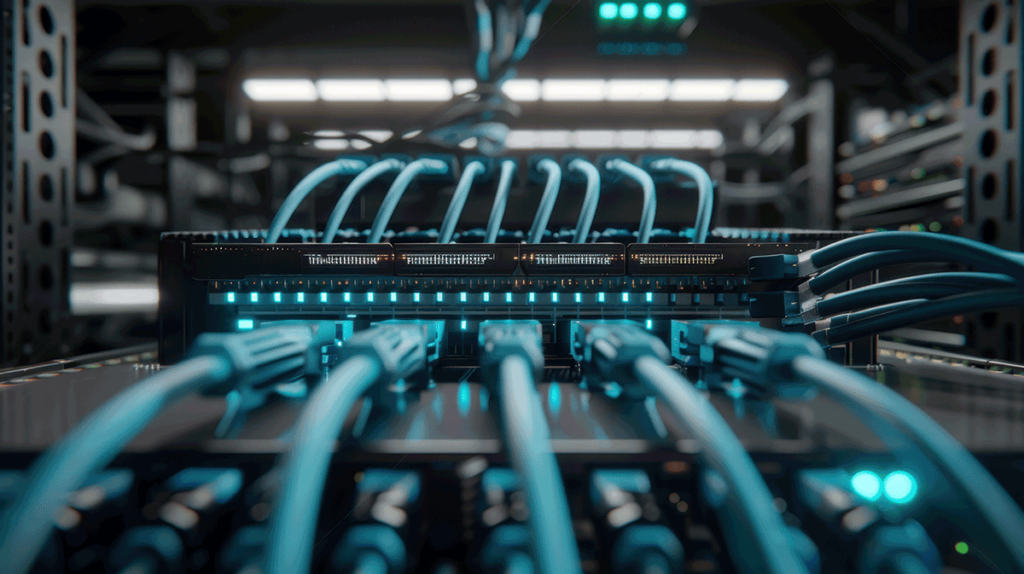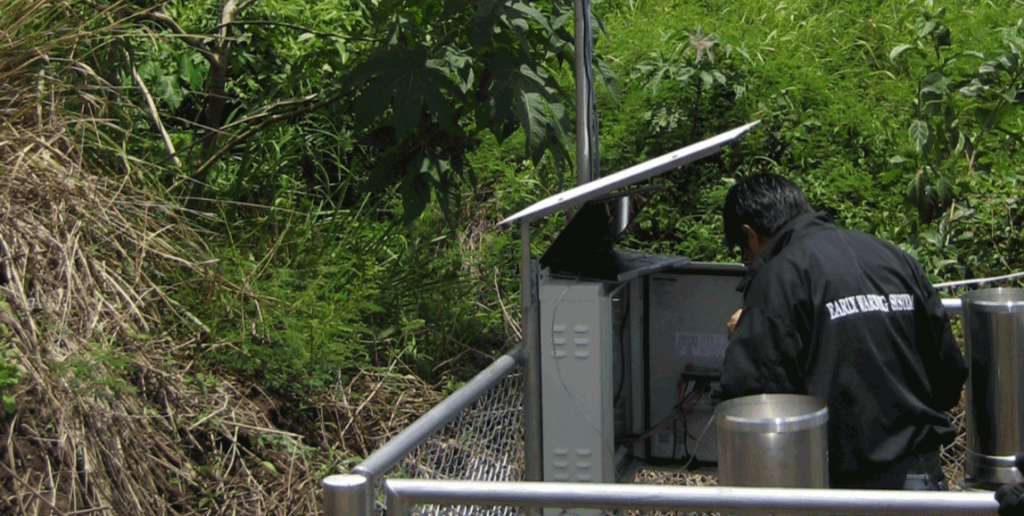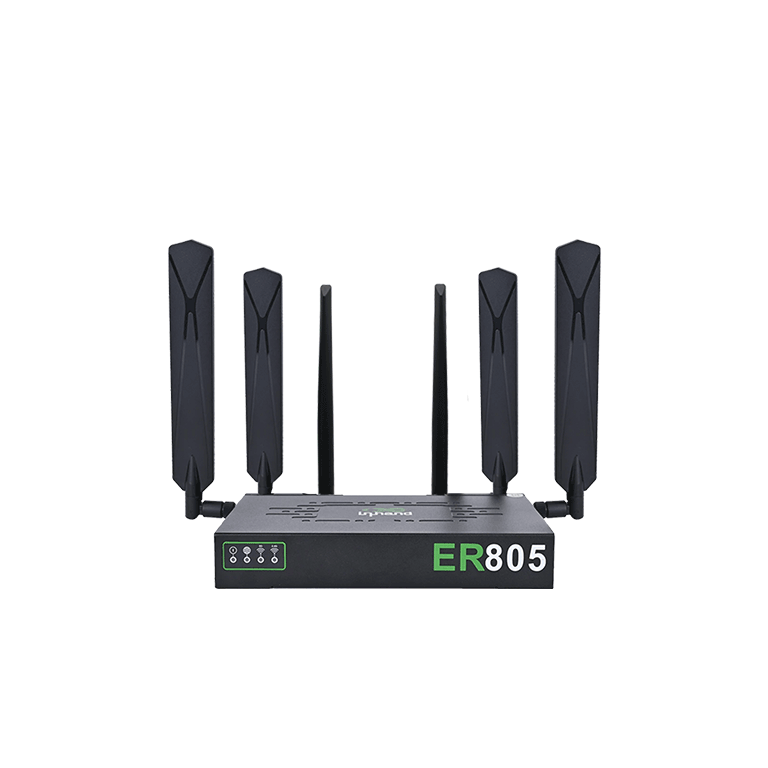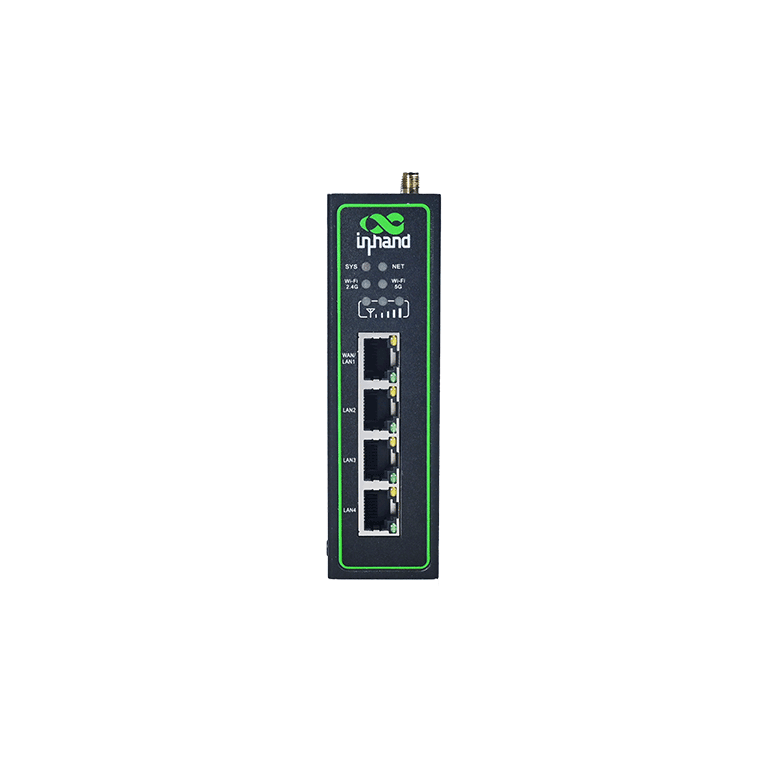
Bei der Wahl zwischen einem Industrierouter und einem Unternehmensrouter ist es wichtig, die spezifischen Funktionen und Anwendungen zu kennen. Beide Arten von Routern sind für unterschiedliche Umgebungen und Anforderungen geeignet. Während Unternehmensrouter für Hochgeschwindigkeitsnetzwerke in stabilen Innenräumen konzipiert sind, sind Industrierouter so gebaut, dass sie rauen Industriebedingungen standhalten und gleichzeitig wichtige Konnektivität bieten.
In diesem Blog werden wir die wichtigsten Unterschiede zwischen Industrieroutern und Unternehmensroutern in Bezug auf Einsatzszenario, Netzwerkmanagement, Ausfallsicherheit, Stabilität und Schnittstellen untersuchen.
Szenario: Unterschiedliche Umgebungen, unterschiedliche Bedürfnisse
- Unternehmens-Router: Enterprise-Router sind in der Regel in IT-Schränken, Rechenzentren oder Büroumgebungen zu finden und wurden für Innenräume konzipiert. Sie bieten Hochgeschwindigkeits-Netzwerkkonnektivität und unterstützen anspruchsvolle Funktionen für Unternehmen, die erweiterte Routing-, Sicherheits- und Netzwerküberwachungsfunktionen benötigen. Diese Router eignen sich hervorragend für stark frequentierte Bereiche, in denen ein hoher Datendurchsatz für einen reibungslosen Betrieb entscheidend ist, wie z. B. in großen Unternehmensnetzwerken oder Rechenzentren.

- Industrieller Router: Industrielle Router hingegen sind für wesentlich rauere Umgebungen ausgelegt. Sie werden an Industriestandorten wie Fabriken, abgelegenen Standorten oder im Freien eingesetzt, wo die Bedingungen weniger kontrolliert werden. Diese Router sind für extreme Temperaturen, Feuchtigkeit und Erschütterungen ausgelegt, was sie in rauen Umgebungen sehr widerstandsfähig macht. Sie unterstützen zwar nicht die gleichen komplexen Netzwerkfunktionen wie Enterprise-Router, aber ihr Design ist auf Stabilität und langfristige Leistung ausgerichtet.
Netzwerk-Management: Komplex vs. vereinfacht
- Unternehmens-Router: Router für Unternehmen sind für ihre umfangreichen Netzwerkverwaltungsfunktionen bekannt. Sie unterstützen komplexe Netzwerkstrukturen und bieten Funktionen wie erweitertes Routing, Switching, Sicherheitsmaßnahmen und umfassende Überwachungstools. Unternehmensnetzwerke erfordern oft eine komplexe Verwaltung, um eine große Anzahl von Benutzern, Geräten und Datenverkehr zu bewältigen und gleichzeitig Sicherheit und Effizienz zu gewährleisten. Diese Router sind ideal für Unternehmen mit IT-Abteilungen, die diese anspruchsvollen Netzwerke verwalten können.
- Industrieller Router: Industrielle Router sind zwar in Bezug auf die Netzwerkverwaltung einfacher, konzentrieren sich aber auf die Bereitstellung grundlegender Internet-Konnektivität. Sie bieten grundlegende Routing- und Sicherheitsfunktionen, sind aber auf die Bedürfnisse industrieller Anwendungen zugeschnitten, wie z. B. die Verbindung von Maschinen, Sensoren und Kontrollsystemen. Durch ihre einfache Konfiguration und Verwaltung eignen sie sich perfekt für Umgebungen, in denen eine einfache und zuverlässige Konnektivität die Hauptanforderung ist, insbesondere an verteilten Industriestandorten. Darüber hinaus werden viele Industrierouter über die Cloud verwaltet, was eine Fernsteuerung und -überwachung für eine bessere Netzwerküberwachung ermöglicht.
Widerstandsfähigkeit und Stabilität: Entwickelt für die Umwelt
- Unternehmens-Router: Diese Router sind für relativ stabile Innenraumumgebungen wie Büros oder Rechenzentren konzipiert, in denen Temperatur, Feuchtigkeit und andere Umgebungsfaktoren kontrolliert werden. Enterprise-Router legen den Schwerpunkt auf einen hohen Datendurchsatz und schnelle Netzwerkgeschwindigkeiten, sind aber weniger gut für extreme Bedingungen geeignet. Wenn sie über einen längeren Zeitraum hinweg unterschiedlichen Umweltfaktoren ausgesetzt sind, kann dies zu Leistungsproblemen oder sogar zu Hardwareausfällen führen.
- Industrieller Router: Robustheit und Stabilität sind die wahren Stärken von Industrieroutern. Diese Geräte sind so konstruiert, dass sie in rauen Umgebungen, einschließlich extremer Temperaturen, Staub, Feuchtigkeit und Vibrationen, eine langfristige, stabile Leistung bieten. Dank dieses robusten Designs können Industrierouter auch in anspruchsvollen Außen- oder Industrieumgebungen eingesetzt werden, in denen Unternehmensrouter unter Umständen ins Stocken geraten. Ob in einer Fabrikhalle oder auf abgelegenen Ölfeldern, Industrierouter sind für Zuverlässigkeit unter extremen Bedingungen optimiert.

Schnittstellen: Maßgeschneidert für die Anwendung
- Unternehmens-Router: Router für Unternehmen sind mit Hochgeschwindigkeitsschnittstellen ausgestattet, die für einen hohen Datenverkehr und Bandbreitenbedarf ausgelegt sind. Typische Schnittstellen sind optische 10G-Ports und elektrische Ports, die eine schnelle Datenübertragung für Anwendungen wie Cloud Computing, Big Data und Echtzeitkommunikation ermöglichen. Diese Router sind ideal für Unternehmen, die leistungsstarke Konnektivität und schnelle Datenübertragungsfunktionen benötigen.
- Industrieller Router: Industrielle Router bieten dagegen eine Vielzahl von Schnittstellen, die für industrielle Anwendungen geeignet sind. Dazu gehören Ethernet-Ports, RS232, RS485, IO und GPS, die Verbindungen zu Fabrikmaschinen, Sensoren und Steuersystemen ermöglichen. Die Vielfalt dieser Schnittstellen sorgt dafür, dass sich Industrierouter nahtlos in ein breites Spektrum von Industrieanlagen integrieren lassen, was sie zu einer wichtigen Komponente in Automatisierungs- und Steuerungssystemen macht.

Schlussfolgerung: Der richtige Router für die richtige Aufgabe
Sowohl Unternehmensrouter als auch Industrierouter haben ihre Stärken, dienen aber unterschiedlichen Zwecken. Unternehmensrouter eignen sich hervorragend für komplexe Hochgeschwindigkeitsnetzwerke, die häufig in Büro- oder Rechenzentrumsumgebungen zu finden sind. Sie bieten erweiterte Funktionen für die Verwaltung umfangreicher Datenströme und komplexer Netzwerkstrukturen. Industrierouter hingegen sind auf Ausfallsicherheit, Stabilität und Einfachheit ausgelegt und eignen sich daher ideal für raue Industrieumgebungen, in denen eine zuverlässige Verbindung für den Betrieb von Geräten und Systemen entscheidend ist.
Die Wahl des richtigen Routers hängt von Ihren spezifischen Anforderungen ab: Wenn Sie eine hohe Leistung in einer kontrollierten Innenraumumgebung benötigen, ist ein Unternehmensrouter die richtige Wahl. Wenn Sie robuste, langlebige Leistung unter rauen Bedingungen benötigen, ist ein Industrierouter die richtige Wahl.

